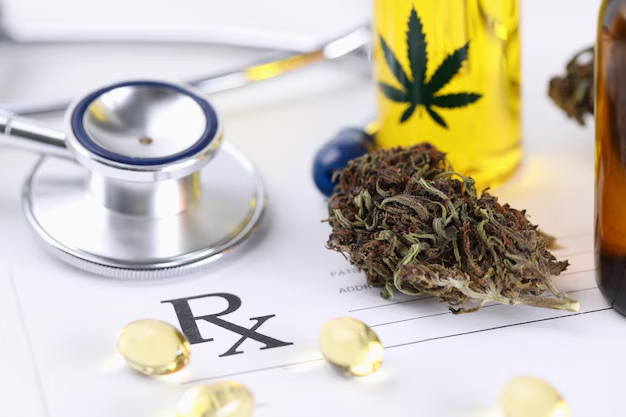Your Guide to Can Weed Cause Hypertension
What You Get:
Free Guide
Free, helpful information about HyperTension FAQ and related Can Weed Cause Hypertension topics.
Helpful Information
Get clear and easy-to-understand details about Can Weed Cause Hypertension topics and resources.
Personalized Offers
Answer a few optional questions to receive offers or information related to HyperTension FAQ. The survey is optional and not required to access your free guide.
Can Marijuana Use Lead to High Blood Pressure?
As the global conversation around cannabis use continues to evolve, a critical question arises: Can marijuana lead to hypertension? Hypertension, or high blood pressure, is a common but serious condition that can have significant implications for heart health. Understanding the connection between cannabis use and hypertension is crucial for everyone, from casual users to health care professionals.
Cannabis and Cardiovascular Health
Marijuana contains compounds known as cannabinoids, the most notable of which are THC (tetrahydrocannabinol) and CBD (cannabidiol). These compounds interact with the body's endocannabinoid system, influencing many physiological processes, including cardiovascular function. Some studies suggest that THC can cause a temporary increase in heart rate and a subsequent rise in blood pressure. This effect may be more pronounced in new or infrequent users, raising concerns for those at risk of hypertension.
However, the data is still inconclusive. While some research indicates a potential for marijuana to elevate blood pressure, other studies show it may actually lower it over the long term. This contradiction primarily arises from variations in study design and cannabis strains. The effects can vary significantly based on individual health conditions and how marijuana is consumed—smoking, vaping, or ingesting edibles all impact the body differently.
Lifestyle and Hypertension
Lifestyle factors are critical in managing high blood pressure. Diet, exercise, stress levels, and substance use all play a role. While occasional marijuana use might not significantly impact a healthy individual, regular consumption, especially in conjunction with other factors like poor diet or lack of exercise, can contribute to cardiovascular issues.
Factors to Consider:
- Frequency: Regular use might have a cumulative impact.
- Type of Product: High-THC products could increase cardiovascular risks.
- Consumption Method: Smoking could contribute to lung and cardiovascular issues.
- Individual Health: Existing cardiovascular conditions can amplify risks.
Navigating Risks: Informative Steps
For those concerned about hypertension and cannabis use, consultation with healthcare providers is essential. Personalized medical advice can guide users in making informed decisions. Also, being aware of government aid programs and financial resources can assist individuals managing health-related expenses.
Exploring Financial Options
Managing health conditions like hypertension can be financially taxing. If you're facing economic challenges, it's important to know your options.
Government Assistance: Programs designed to cover health-related costs can be a lifeline. Check your eligibility for Medicaid or Medicare if applicable.
Debt Relief Options: Organizations can help renegotiate debts, freeing up funds for medical needs.
Credit Card Solutions: Some credit cards offer special plans or points that help offset medical expenses.
Educational Grants: Scholarships or grants for health-related fields can support career changes, offering a pathway to more healthcare-oriented professions.
Insurance Review: Regularly reviewing your health insurance plan can ensure you have adequate coverage for hypertension treatment and related health services.
Being informed and proactive about health and financial opportunities can greatly impact one's quality of life. Whether you're pondering the effects of cannabis on hypertension or managing medical expenses, understanding available resources is key to navigating these complex challenges with confidence.
What You Get:
Free HyperTension FAQ Guide
Free, helpful information about Can Weed Cause Hypertension and related resources.

Helpful Information
Get clear, easy-to-understand details about Can Weed Cause Hypertension topics.

Optional Personalized Offers
Answer a few optional questions to see offers or information related to HyperTension FAQ. Participation is not required to get your free guide.


Discover More
- a 66 Year Old Female With a History Of Hypertension
- Are Eggs Bad For Hypertension
- Are Eggs Good For Hypertension
- Are Endocrine Disorders Causing Hypertension Rare
- Can Adderall Cause Hypertension
- Can Alcohol Cause Hypertension
- Can Allergies Cause Hypertension
- Can Anemci People Get Hypertension
- Can Anemia Cause Hypertension
- Can Antibiotics Cause Hypertension
